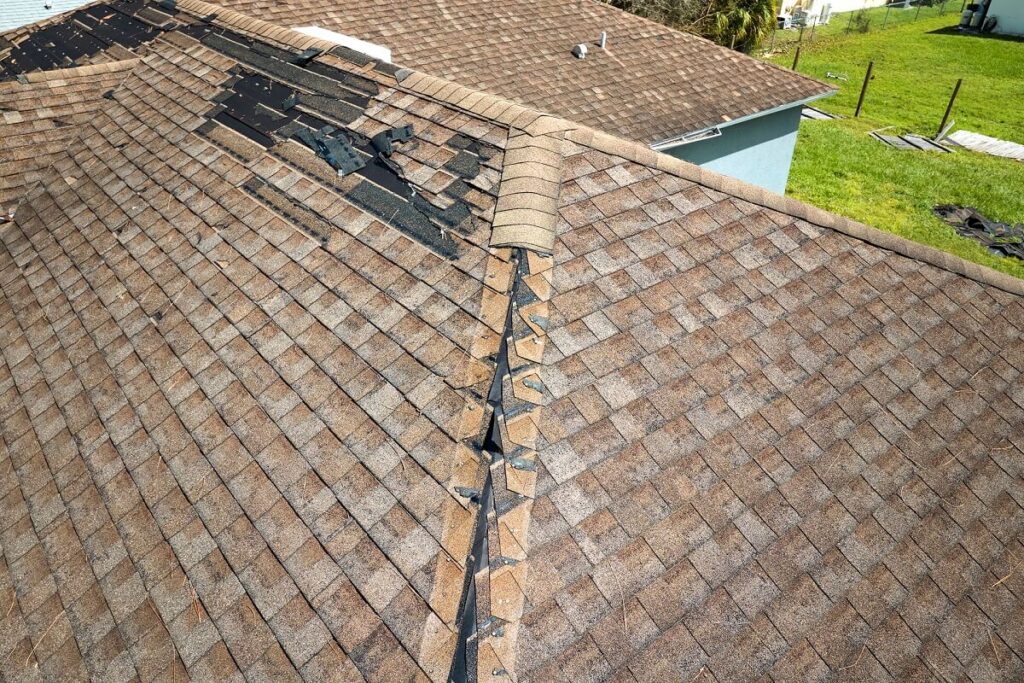Owning a home means making significant investments, and one of the most important is ensuring the longevity of your roof. A new roof not only enhances protection but also boosts curb appeal and increases resale value. Like any other part of your home, roofs have a limited lifespan and will eventually require the expertise of a roofing contractor. When faced with roof damage, deciding between repairs or investing in a new roof depends on factors like age, extent of damage, and budget. Today, we’ll explore the costs of repairs versus replacement to help you determine the best financial decision.
The Importance of Roof Maintenance
Before we dive into the specifics of repair vs. replacement costs, it’s essential to emphasize the significance of regular roof maintenance. Proper maintenance can significantly extend the lifespan of your roof and help you avoid the need for major repairs or premature replacement.
Routine inspections by a professional roofing contractor can catch issues early, allowing for timely repairs and saving you money in the long run. Moreover, clearing debris, maintaining the gutters, and addressing minor problems promptly can prevent more extensive damage from occurring. It’s often the neglect of routine maintenance that leads to costly roof problems that require significant repairs or a complete replacement.
Factors to Consider When Assessing Repair Costs
When assessing whether to repair or replace your roof, the following factors will influence your decision:
- Extent of Damage – The most crucial factor in determining whether to repair or replace your roof is the extent of the damage. Minor issues such as a few missing shingles or small leaks can often be fixed with simple repairs. However, if the damage is widespread and affects a large portion of your roof, it may be more cost-effective to replace the entire roof rather than trying to patch up numerous areas.
- Age of the Roof – The age of your roof is another critical consideration. Most roofing materials have a lifespan, and as they approach the end of that lifespan, they become more prone to problems. If your roof is near the end of its expected life, it might be more economical to invest in a new roof rather than pouring money into frequent repairs.
- Repair Costs – You should obtain estimates from professional roofing contractors to determine the cost of repairs. Compare these estimates with the cost of a new roof to see if it makes financial sense to invest in repairs. If the repair costs are relatively low and your roof still has several years of life left, repairs are usually the preferable option.
- Energy Efficiency – An older roof may not be as energy-efficient as a new one. If your roof is outdated and not providing adequate insulation, it might be more cost-effective to replace it with a more energy-efficient option, which can lead to long-term savings on your energy bills.
- Long-Term Plans – Consider your long-term plans for your property. If you intend to sell your home in the near future, a new roof can significantly increase your property’s value and curb appeal. In such cases, a replacement roof can be a wise investment.
Factors to Consider When Assessing Replacement Costs
- Age of the Roof – The age of your roof can be a determining factor for replacement. If your roof is relatively new and still has many years left in its lifespan, it might not be necessary to replace it even if you’re facing some issues.
- Number of Layers – The number of existing roof layers is another factor to consider. Building codes typically allow for a maximum of two roof layers. If your current roof already has two layers, you’ll likely need to remove the old roof before installing a new one, which can increase the cost of replacement.
- Material Choice – The type of roofing material you choose will greatly impact the cost of replacement. Asphalt shingles are typically more budget-friendly, while materials like metal, tile, or slate tend to be more expensive. The choice of material depends on your budget, climate, and aesthetic preferences.
- Complexity of the Roof – A complex roof design with multiple angles, dormers, or intricate architectural details can increase the labor and material costs for replacement. Conversely, a simple, straightforward roof design is generally more cost-effective to replace.
- Roof Deck Condition – The condition of the roof deck (the layer beneath the roofing material) can impact the cost of replacement. If the deck is damaged or deteriorating, it may need repairs or replacement, adding to the overall project cost.
- Removal and Disposal – Removal and disposal of the old roof can add significant expenses to the replacement project. This includes labor, disposal fees, and potential repairs to the underlying structure. It’s essential to factor in these costs when comparing repair and replacement options.
Cost Comparison: Repair vs. Replacement
The decision to repair or replace your roof ultimately comes down to a cost-benefit analysis. Here’s a cost comparison that can help you make an informed decision:
Roof Repair Costs:
- Minor Repairs – Fixing minor issues like a few missing shingles, small leaks, or simple flashing repairs can cost anywhere from $100 to $500.
- Moderate Repairs – More extensive repairs, including patching multiple leaks or replacing a section of the roof, can range from $500 to $1,500.
- Major Repairs – When dealing with significant damage or widespread issues, you could be looking at repair costs of $1,500 to $3,000 or more.
Roof Replacement Costs:
- Asphalt Shingles – Replacing an asphalt shingle roof typically costs between $3,000 and $7,000, depending on the size and complexity of your roof.
- Metal Roofing – Metal roofs are generally more expensive, with replacement costs ranging from $5,000 to $15,000 or higher.
- Tile or Slate Roofing – Tile and slate roofs are at the higher end of the cost spectrum, often exceeding $15,000, and sometimes reaching $25,000 or more.
It’s important to keep in mind that these are general cost ranges, and actual costs can vary significantly based on your location, the materials used, and the scope of the project.
Peak Roofing & Exteriors
If you’re looking for an honest and experienced roofing contractor that can handle your home or business roofing needs in West Texas, look no further. Peak Roofing & Exteriors will deliver with quality and integrity. Contact us today and book your FREE inspection!

